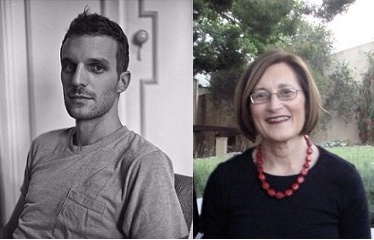Developing Multilingualism in Urban contexts- Northern aspirations in the Global South

Co-Organizers
Christine Anthonissen
Gilles Baro
Presenters
Christine Anthonissen
Gilles Baro
Doris Correa
Helena Guerrero
Abstract
Much has recently been written on urban multilingualism, particularly in northern contexts (cf. Extra & Yagmur 2004; Quist & Svendsen 2010; Gorter, Marten & Van Mensel 2012; Caliendo 2018); considerably less, however, has been published on the range, repertoires, social histories,communicative practicesor urban infrastructureof multilingual communities in the global south(cf. Emlen 2017; Benson 2018)and, more specifically southern Africa (cf.Stroud and Mpendukana 2009;Bristowe, Oostendorp & Anthonissen 2014; Baro 2017; Iqani and Baro 2017; Bornman, Mosquera & Seti 2018). Considering this imbalance in scholarly interest and the associated effects on knowledge distribution, this panel will report on pertinent aspects of global-southern urban multilingualismin two regions: southern Africa and Colombia in South America.It will attend specifically to different urban ‘contact zones’ where various indigenous and (im-)migrant languagesmeet, interact,co-existor clash with former colonial languages. Referring to post-colonial theory, we consider ways in which northern aspirations, often unconsciously, permeate southern personal, professional, and linguistic awareness. The panel will reflect onthe interaction of place and language in constructing social identity in southern cities.Attention will also be given to the ways in which discourses of(northern)aspirationsare tied to globalised neoliberal politics and how multimodal and embodied multilingual practices are impacted.
Organizers’ Biographies
Christine Anthonissen is emeritus professor in sociolinguistics and applied linguistics at Stellenbosch University, South Africa. Her work is situated in discourse analysis, critical discourse analysis, narrative studies, and ethnographic approaches to multilingualism. Specifically, she relates to the southern African context, having used CDA in analyzing media discourses ofthe 1980s, and ofmemories of state violence in the 1990s. More recent work has attended to social aspects of bilingualism and multilingualism, notably discourses of recent African migrants into South AfricaandNamibia, also tracing how national language policy relates to language choices in multilingual South Africa, considering how official policy rarely addresses the neglect of African language L1 speakers, particularly in education.
Gilles Barois a lecturer and researcher in sociolinguistics at the University of the Witwatersrand in Johannesburg, South Africa. His work is located in linguistic and semiotic landscape studies, geosemiotics and multimodality. One of his primary interests is understanding waysin which changing urban settings create, erase or reclaim meaning. He has studied and published on the recent redevelopment of the inner city of Johannesburg and has shared critical views on the strategies used by the private sector to shift the urban discourse away from the city’s apartheid past to one of global “gentrification”, consumption and heritage.
